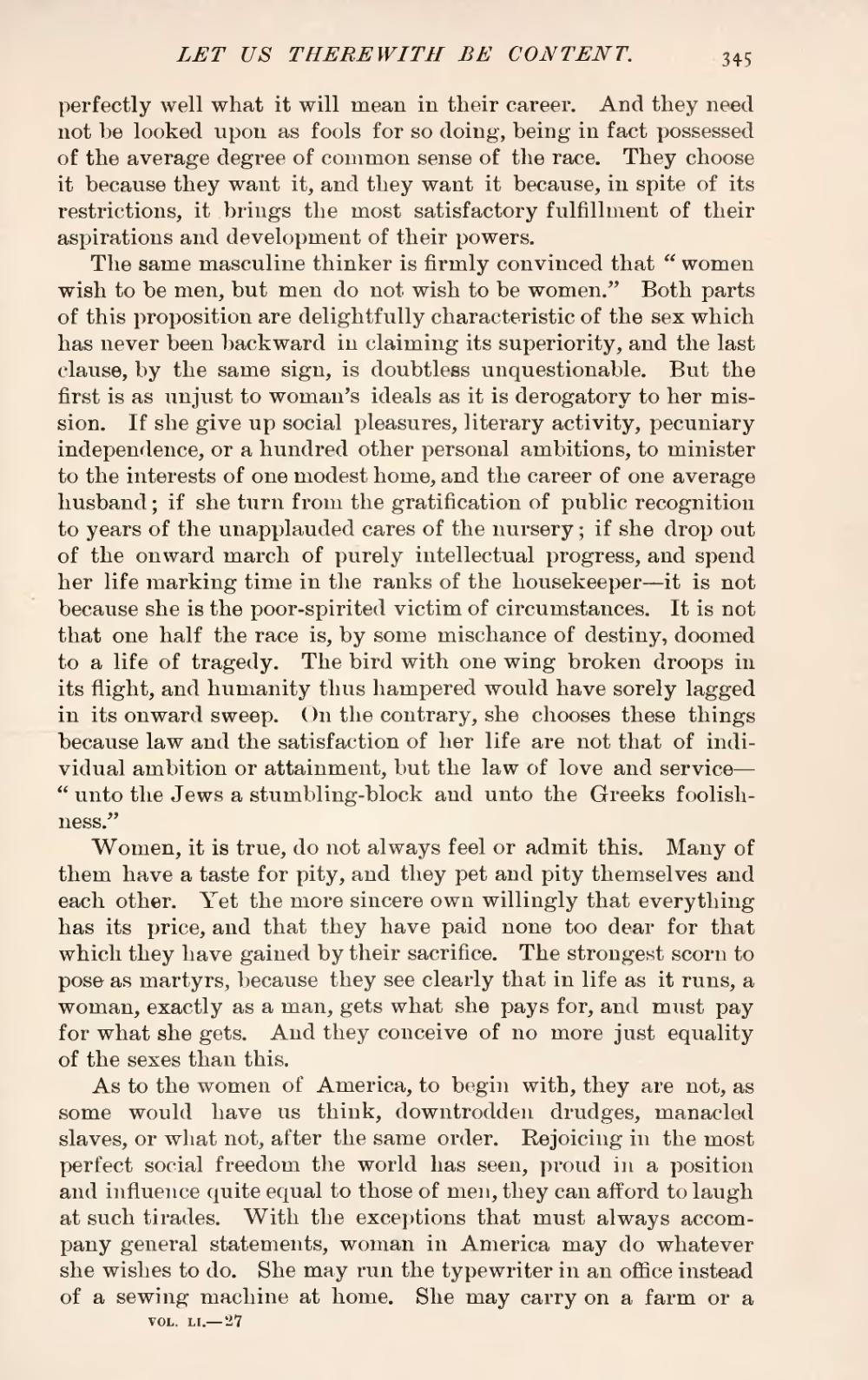perfectly well what it will mean in their career. And they need not be looked upon as fools for so doing, being in fact possessed of the average degree of common sense of the race. They choose it because they want it, and they want it because, in spite of its restrictions, it brings the most satisfactory fulfillment of their aspirations and development of their powers.
The same masculine thinker is firmly convinced that "women wish to be men, but men do not wish to be women." Both parts of this proposition are delightfully characteristic of the sex which has never been backward in claiming its superiority, and the last clause, by the same sign, is doubtless unquestionable. But the first is as unjust to woman's ideals as it is derogatory to her mission. If she give up social pleasures, literary activity, pecuniary independence, or a hundred other personal ambitions, to minister to the interests of one modest home, and the career of one average husband; if she turn from the gratification of public recognition to years of the unapplauded cares of the nursery; if she drop out of the onward march of purely intellectual progress, and spend her life marking time in the ranks of the housekeeper—it is not because she is the poor-spirited victim of circumstances. It is not that one half the race is, by some mischance of destiny, doomed to a life of tragedy. The bird with one wing broken droops in its flight, and humanity thus hampered would have sorely lagged in its onward sweep. On the contrary, she chooses these things because law and the satisfaction of her life are not that of individual ambition or attainment, but the law of love and service—"unto the Jews a stumbling-block and unto the Greeks foolishness."
Women, it is true, do not always feel or admit this. Many of them have a taste for pity, and they pet and pity themselves and each other. Yet the more sincere own willingly that everything has its price, and that they have paid none too dear for that which they have gained by their sacrifice. The strongest scorn to pose as martyrs, because they see clearly that in life as it runs, a woman, exactly as a man, gets what she pays for, and must pay for what she gets. And they conceive of no more just equality of the sexes than this.
As to the women of America, to begin with, they are not, as some would have us think, downtrodden drudges, manacled slaves, or what not, after the same order. Rejoicing in the most perfect social freedom the world has seen, proud in a position and influence quite equal to those of men, they can afford to laugh at such tirades. With the exceptions that must always accompany general statements, woman in America may do whatever she wishes to do. She may run the typewriter in an office instead of a sewing machine at home. She may carry on a farm or a

